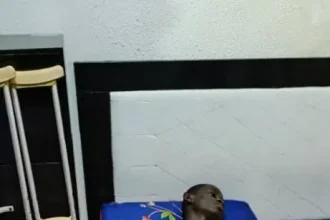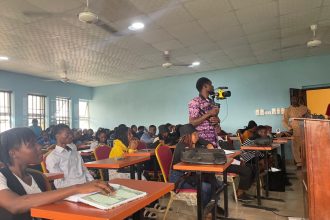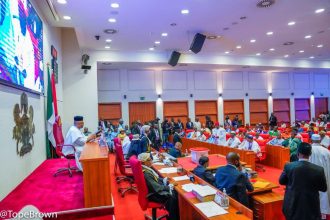The House of Representatives on Thursday called on the Federal Government to urgently intervene to contain the growing spread of Buruli Ulcer in Benue State, particularly in Ushongo Local Government Area.
The House directed the Federal Ministry of Health and the Nigeria Centre for Disease Control (NCDC) to immediately conduct a comprehensive investigation into the outbreak and establish an NCDC laboratory at the NKST Aku Comprehensive Health Centre and Cottage Hospital, Ikyobo, in Ushongo Local Government Area.
This followed the adoption of a motion sponsored by Hon. Terseer Ugbor (APC, Benue) during plenary presided over by Deputy Speaker Benjamin Kalu.
Adopting the motion, the House also mandated its Committee on Healthcare Services to ensure prompt implementation of the resolution and report back within four weeks for further legislative action.
Leading debate on the motion, Hon. Ugbor lamented that for several years, rural dwellers had attributed the disease to witchcraft or supernatural causes until it was correctly identified as a bacterial infection by medical experts, notably Dr. Paul Orhi.
He expressed deep concern over the alarming rate at which the disease, known locally as Ambi has continued to ravage communities in Benue for over a decade, noting that it is curable through proper medical intervention.
Ugbor decried the continued escalation of cases despite the availability of effective treatment, blaming it on the absence of diagnostic and treatment facilities in the affected areas.
According to him, the lack of a functional laboratory forces patients to send samples to Lagos for analysis, resulting in delays, misdiagnoses, and avoidable amputations.
He emphasized that early detection and prompt antibiotic therapy can completely cure the disease and prevent deformities, but warned that the lack of diagnostic infrastructure has worsened the plight of victims—many of whom are now impoverished and physically disabled.
The lawmaker therefore urged the Federal Government to establish a well-equipped diagnostic laboratory in Benue to enhance disease detection, research, and treatment.
He explained that such a facility would serve as a regional hub for the diagnosis, management, and control of Buruli Ulcer and other infectious diseases in the North Central zone.
Buruli Ulcer, a neglected tropical disease caused by Mycobacterium ulcerans, affects the skin, underlying tissues, and in severe cases, the bone. It typically begins as a painless swelling or nodule, often on the limbs or face, but can progress into large open sores leading to tissue decay, deformity, and permanent disability if untreated.
Experts say while the exact mode of transmission remains unclear, the infection is strongly associated with swampy environments, stagnant water, and ecological disruptions such as deforestation, flooding, and dam construction. Because the disease initially presents without pain, many victims in rural communities delay seeking medical attention, resulting in prolonged suffering, social stigma, and financial hardship.
Please follow and like us:


















